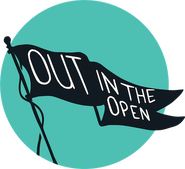Advancing the Progress of Rural LGBT America
On December second Green Mountain Crossroads’ executive director, HB Lozito; board member, Emily Marker; and local community member and filmmaker, Jonah Mossberg, participated in a White House Rural Policy Council convening on advancing the progress of LGBT people in rural America.
The nature of our rural-focused work often means that we are geographically isolated from others working in rural LGBTQ communities. A large part of the work of GMC is building those connections among LGBTQ people in rural areas and small towns—we are doing this all the time in our own home region through activities like our Out in the Open Summit, Earth Gay Vermont, Pride Family Picnic, Trans Book Group, and our other regular programming. It was exciting to be in a room 60 other people from all over the U.S. who are also working with rural LGBTQ folks in their own home communities.
At the start of the convening, we were informed that the meeting was to be off the record including names of who was attending, direct quotes, as well as photos with out specific permission. While honoring this request, we wanted to share some details about the gathering.
The day started off with a conversation between StoryCorps, and the Human Rights Campaign. Folks discussed the power of oral history and storytelling for LGBT communities. A question came up in the Q+A session about if the person from StoryCorps knew of any rural communities conducting oral history projects. I didn’t have a chance to mention our Andrew’s Inn oral history project during the session but I did follow the speaker into the hallway after the session in order to share with him about our project (we currently have over 30 hours of interviews recorded! Anyone want to help us transcribe?)
Next up was a panel on civil rights and legal issues featuring an Assistant to the President; a representative from the U.S. Department of Justice, Civil Rights Division; as well as from the Lawyer’s Committee for Civil Rights Under the Law. The folks on this panel drew a distinction between federal appointees and career lawyers working in the Department. The expressed perspective was that while we will collectively be facing many challenges these next few years, only a small percentage of the people working in the federal government are appointees who will be replaced with the new incoming administration.
The last panel of the afternoon was looking at innovation and tech tools we can use (and that are already being used) for organizing in rural LGBT communities. Moderated by a representative from BiNet. Featured panelists included people from Human Dignity Coalition, LGBT Technology Partnership and Institute; Fairness Campaign, and California Rural Legal Assistance. Folks from Fairness Campaign shared about how they achieved LGBT campaign wins throughout Kentucky over time often by showing up to small community gatherings and events giving the example that “every small community has a strawberry or blueberry festival!” I thought fondly of our local Camp Destiny Radical Faeries who serve pie each fall at the Dummerston Apple Pie Festival.
After the panels, we had the opportunity to join brief break-out sessions. I attended a session about economic opportunities and barriers for rural LGBT communities. In the break-out, I shared about how I see great potential for our work here at GMC as economic development. I hear from people all the time that they were thinking of moving to the area but had concerns about being isolated and wondering what if any queer community would exist in this rural area. When they discover GMC, it makes LGBTQ life in this rural region seem possible.
Before wrapping up the gathering with some networking, a person from USDA leadership spoke about their agency’s charge to develop and strengthen rural communities from housing to support for those facing addictions.
We made great connections with folks working on rural LGBTQ issues throughout the U.S. including Creating Change Foundation, ACLU of Kentucky, National Center for Lesbian Rights, True Colors Fund, and the Trevor Foundation among others. I’m excited to see what we can make of these new and on-going connections to help us continue building power of rural LGBTQ people here in Southern Vermont!

